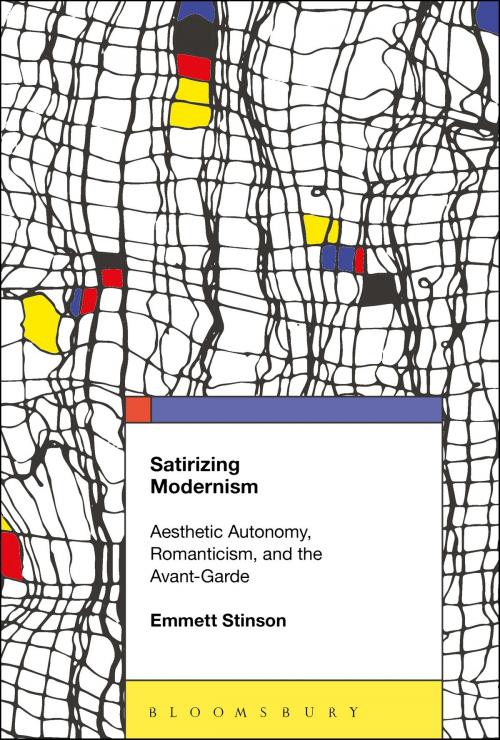Satirizing Modernism
Aesthetic Autonomy, Romanticism, and the Avant-Garde
Fiction & Literature, Literary Theory & Criticism, Gothic & Romantic, Theory| Author: | Dr. Emmett Stinson | ISBN: | 9781501329098 |
| Publisher: | Bloomsbury Publishing | Publication: | June 1, 2017 |
| Imprint: | Bloomsbury Academic | Language: | English |
| Author: | Dr. Emmett Stinson |
| ISBN: | 9781501329098 |
| Publisher: | Bloomsbury Publishing |
| Publication: | June 1, 2017 |
| Imprint: | Bloomsbury Academic |
| Language: | English |
Satirizing Modernism examines 20th-century novels that satirize avant-garde artists and authors while also using experimental techniques associated with literary modernism. These novels-such as Wyndham Lewis's The Apes of God, William Gaddis's The Recognitions, and Gilbert Sorrentino's Imaginative Qualities of Actual Things-were under-recognized and received poor reviews at the time of publication, but have increasingly been acknowledged as both groundbreaking and deeply influential. Satirizing Modernism analyzes these novels in order to present an alternative account of literary modernism, which should be viewed neither as a radical break with the past nor an outmoded set of aesthetics overtaken by a later postmodernism. In self-reflexively critiquing their own aesthetics, these works express an unconventional modernism that both revises literary history and continues to be felt today.
Satirizing Modernism examines 20th-century novels that satirize avant-garde artists and authors while also using experimental techniques associated with literary modernism. These novels-such as Wyndham Lewis's The Apes of God, William Gaddis's The Recognitions, and Gilbert Sorrentino's Imaginative Qualities of Actual Things-were under-recognized and received poor reviews at the time of publication, but have increasingly been acknowledged as both groundbreaking and deeply influential. Satirizing Modernism analyzes these novels in order to present an alternative account of literary modernism, which should be viewed neither as a radical break with the past nor an outmoded set of aesthetics overtaken by a later postmodernism. In self-reflexively critiquing their own aesthetics, these works express an unconventional modernism that both revises literary history and continues to be felt today.















